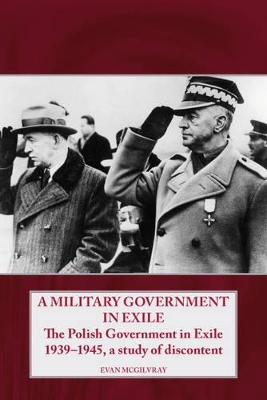This work examines the nature of the relationship between the British Government and the Polish Government-in-Exile, 1939-1945. The relationship was extremely difficult owing to the extremity of the time and the situations of the two governments. Before 1939 there had been little contact between Poland and Britain, however between 1939 and 1945 the two countries were joined in a common desire for the military defeat of Germany: this was virtually the only common goal that the two governments shared; Polish ambitions to see Poland restored to its pre-war frontiers were not shared with its major allies (Britain, the USA and the Soviet Union) after 1941.
The question of differing objectives caused friction between the Western allies, the Soviet Union and the Polish Government-in-Exile. The Polish Government-in-Exile failed to recognise its true position in the alliance: it was very much a junior partner - just another minor European power and irritant. A key problem in the relationship between the British Government and the Polish Government-in-Exile was bound up in the lack of democracy present in the latter. Between 1926 and 1939 Poland had been ruled by a military clique and the signs were that little had changed in the mindset of many Poles, especially those military officers who arrived in exile after 1939. This situation vexed the British Government, which sought to work with democratically minded Poles, but found this pool to be limited owing to the continuing political influence of the Polish military in exile. This attitude worsened as the war progressed until eventually the Polish Government-in-Exile lost any relevance in the war against Germany.
- ISBN10 1906033587
- ISBN13 9781906033583
- Publish Date 15 March 2010
- Publish Status Active
- Publish Country GB
- Imprint Helion & Company
- Format Paperback
- Pages 160
- Language English
